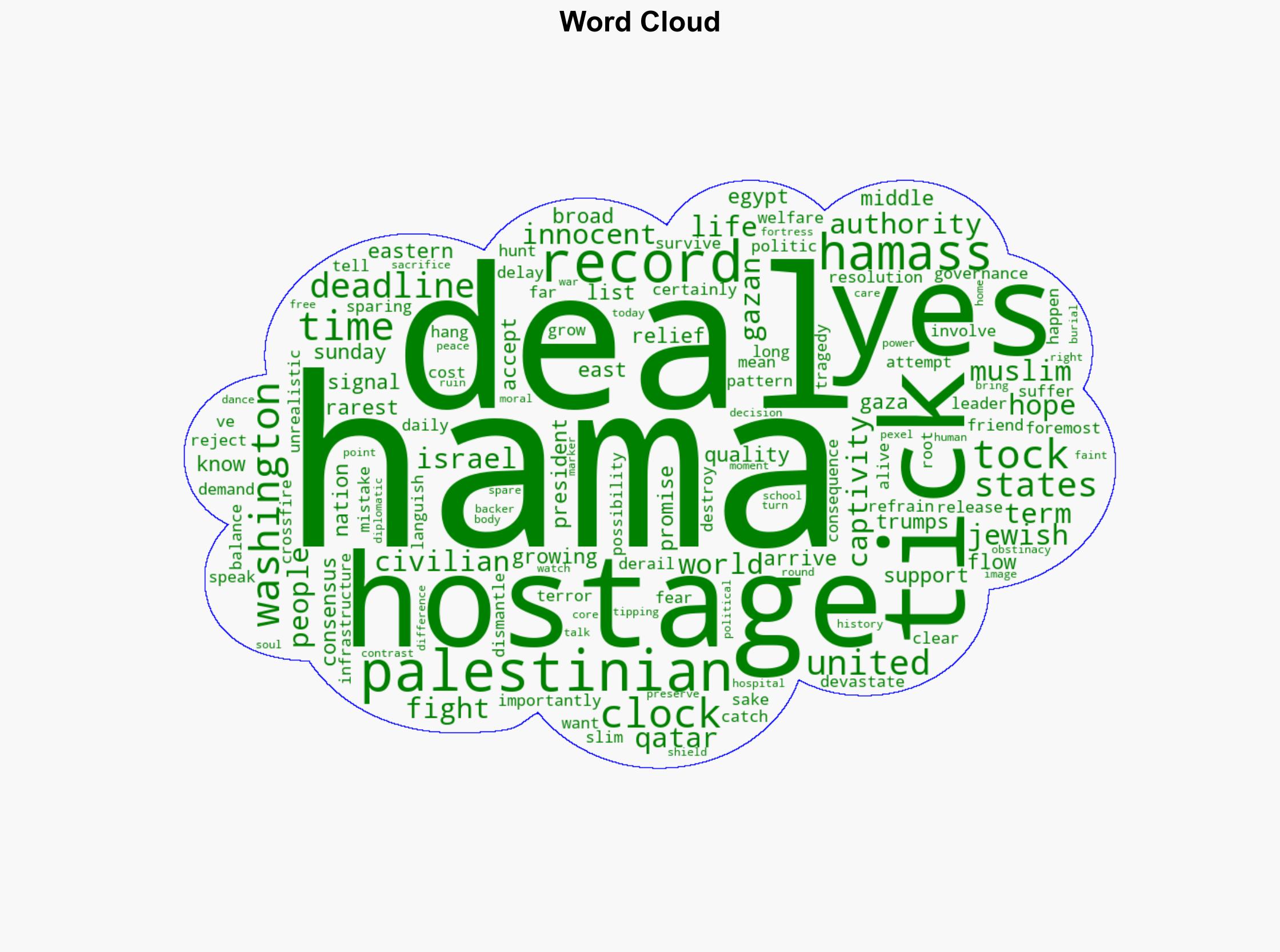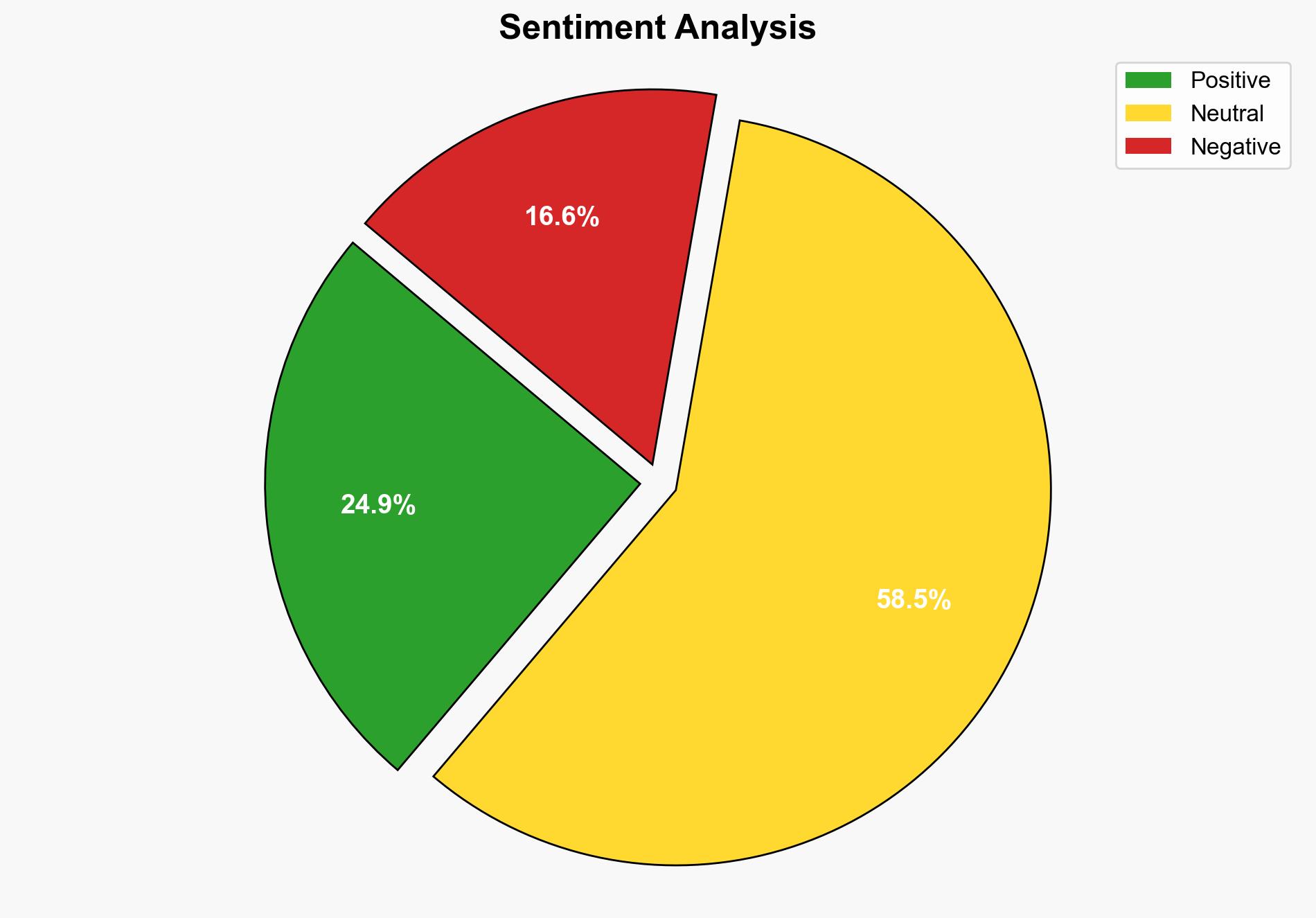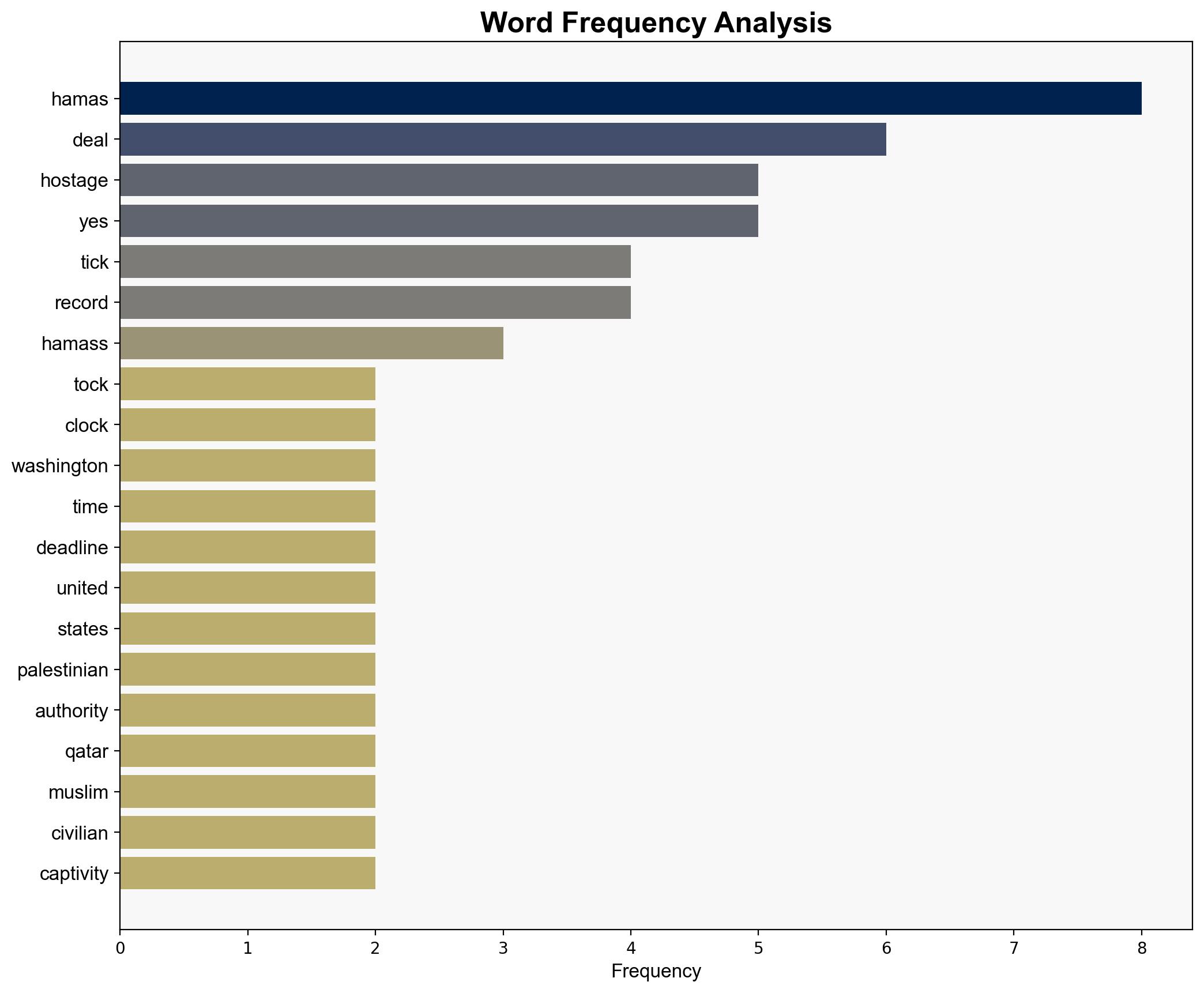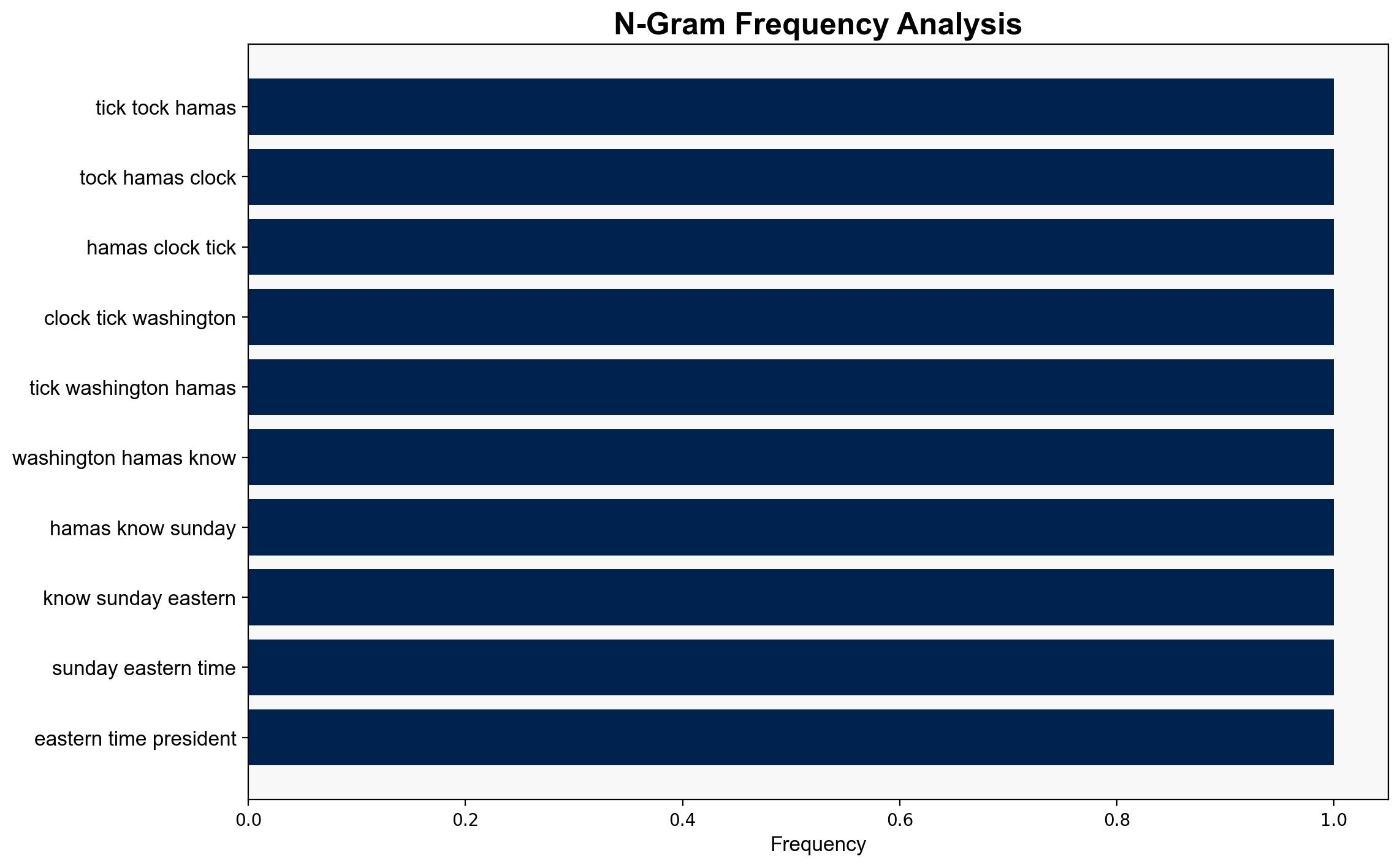Tick-tock Hamas – Americanthinker.com
Published on: 2025-10-05
Intelligence Report: Tick-tock Hamas – Americanthinker.com
1. BLUF (Bottom Line Up Front)
The most supported hypothesis is that Hamas is unlikely to accept the proposed deal due to historical patterns of prioritizing political power over humanitarian concerns. Confidence level is moderate, given the complexity of regional dynamics. Recommended action is to prepare for potential escalation and humanitarian crisis management, while maintaining diplomatic channels to encourage negotiation.
2. Competing Hypotheses
Hypothesis 1: Hamas will reject the deal due to its historical pattern of prioritizing political power and resistance over humanitarian relief and international consensus. This is supported by past behavior and the current political rhetoric emphasizing resistance.
Hypothesis 2: Hamas will accept the deal under international pressure and the promise of humanitarian relief, recognizing the unsustainable nature of current conditions in Gaza. This is supported by increasing international consensus and pressure from regional allies.
Using ACH 2.0, Hypothesis 1 is more strongly supported due to consistent historical behavior and statements from Hamas leadership that align with rejection and resistance.
3. Key Assumptions and Red Flags
Assumptions for Hypothesis 1 include the belief that Hamas values political power over humanitarian relief, and that international pressure will not significantly alter their stance. A red flag is the assumption that Hamas leadership is unified in this decision, as internal dissent could alter outcomes.
For Hypothesis 2, the assumption is that international pressure and humanitarian needs will outweigh political considerations. A potential blind spot is underestimating the influence of hardliners within Hamas who may oppose any deal.
Inconsistent data includes the lack of clear communication from Hamas regarding their intentions, which could indicate internal conflict or strategic deception.
4. Implications and Strategic Risks
If Hamas rejects the deal, there is a high risk of increased violence and humanitarian crisis in Gaza, potentially leading to broader regional instability. Economic impacts include further strain on Gaza’s economy and increased international aid requirements. Geopolitically, rejection could strain relations between supporting nations and complicate U.S. diplomatic efforts.
Acceptance of the deal could lead to short-term stabilization but may not address underlying political tensions, risking future conflict. Cybersecurity threats could emerge as actors seek to exploit instability.
5. Recommendations and Outlook
- Enhance diplomatic efforts to encourage Hamas to consider humanitarian impacts and international consensus.
- Prepare contingency plans for humanitarian aid and crisis management in the event of deal rejection.
- Monitor internal dynamics within Hamas for signs of dissent or shifts in strategy.
- Best case: Hamas accepts the deal, leading to temporary stabilization. Worst case: Rejection leads to increased conflict and humanitarian crisis. Most likely: Continued stalemate with sporadic violence.
6. Key Individuals and Entities
Key individuals include Hamas leadership and representatives from the United States, Palestinian Authority, Qatar, and Egypt, who are involved in the negotiation process.
7. Thematic Tags
national security threats, cybersecurity, counter-terrorism, regional focus





